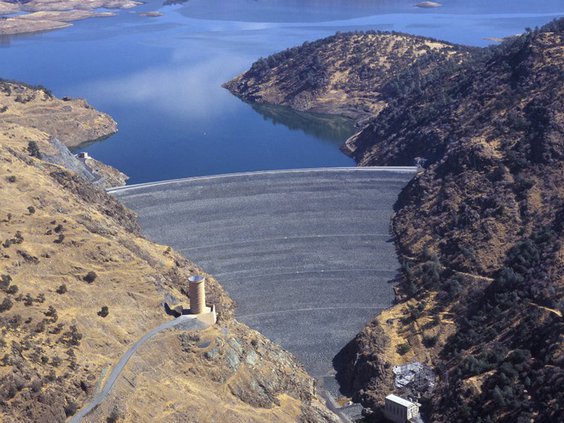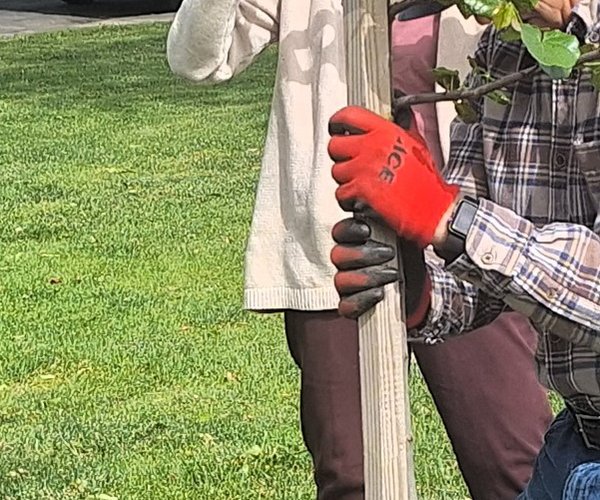Northern San Joaquin Valley farmers — frustrated with their input being completely ignored in a state plan to commandeer water from the Stanislaus, Tuolumne, and Merced rivers in a bid to boost endangered Chinook salmon by 1,103 fish — are lauding a push by 14 congressmen to pull the plug on what has been characterized as a massive state water grab.
A plan for the increased diversion of water from urban and farm uses from the Stanislaus, Tuolumne, and Merced rivers advanced by the State Water Resources Control Board has been heralded as a way to possibly save salmon and other native fish.
But farmers — as well as cities in the 209 — say the cost as structured is overtly excessive as they point to statements in the proposed state plan that indicate doubling unimpaired flows on the three Lower San Joaquin River tributaries to 40 percent should increase Chinook salmon population on the three rivers should increase by 1,103 fish. That is the best case scenario based on state projections of what would happen after sending 350,000 more acre feet of water into the Delta and out to the Pacific Ocean. That is the loss of enough water to meet the needs of 1 million Californians for a year.
Given the Bureau of Reclamation is a key player on the various watersheds involved, Congressman Jeff Denham – with the backing of 13 other California congressmen – announced last week that he has sent a letter to Speaker of the House Paul Ryan to make sure that his House-passed amendment to stop the plan is included in the next spending bill that is signed into law.
Calling the effort by the State Water Resources Control Board “Sacramento’s water grab,” Denham – who will have his occupation listed as “farmer” on the ballot in November – echoed the sentiments by many California growers who are wary of the plan that they say is weak on scientific consensus at best, and detrimental to the heart of California’s multi-billion-dollar agricultural industry at worst.
“My amendment halts the disastrous Bay-Delta Plan that would see 40 percent of our water flushed out in to the ocean,” Denham said in the release. “Congress must act to protect the Valley.”
Denham has been using his clout in Washington, D.C., to ensure that those with the power to affect such decisions are aware of what is happening in the heart of California’s vital San Joaquin Valley.
Earlier this summer Denham welcomed Interior Secretary Ryan Zinke to his district, and accompanied him on trips to both New Melones and Don Pedro reservoirs – vital pieces of the Central Valley’s water supply that would be directly affected by the Bay-Delta plan that would up the required amount of “unimpaired flows” to double what they are right now.
And Denham said in a release last month that Zinke shares his concerns about the plan and the potential detrimental effects of its implementation.
“After our tour of local reservoirs, Secretary Zinke recognizes that Sacramento’s water grab would cripple our communities, farms and water storage infrastructure,” Denham said in a press release. “Our water, our water rights, and our future depend on stopping this wasteful plan.”
For local almond grower Dave Phippen, who has tracked the plan since its inception and attended many of the meetings that the State Water Board held to hear from constituents in the valley, the announcement of help from Washington, D.C,. against what many feel was a fixed fight is reassuring.
“This is something that is affecting people’s lives,” said Phippen – who is right in the middle of the annual almond harvest. “We’re talking about something that my father and my grandfather invested in by floating bonds against our land so that the Tri-Dam project could be built, and we could ensure that we had access to water.
“We feel like there’s a sweat equity investment in the water that flows to us, and having somebody that is willing to fight for that means everything.”
Denham’s letter to Ryan was also signed by thirteen other members of the California Congressional Delegation: Representatives David Valadeo, Doug LaMalfa, Jim Costa, Devin Nunes, Paul Cook, Tom McClintock, Steve Knight, Ed Royce, Ken Calvert, Mimi Walters, Dana Rohrabacher, Duncan Hunter and Darrell Issa.
To contact reporter Jason Campbell email jcampbell@mantecabulletin.com or call 209.249.3544.





